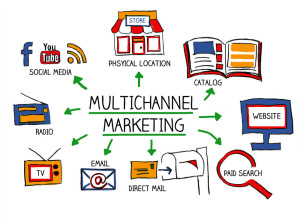
It started when we accepted the wrong job offer
Accepting the wrong job offer
In the past 3 weeks, I have met with three different job seekers and I noticed a common thread. With each situation, the candidates DID NOT realize they were working against themselves in their job search. Frankly, I think that this phenomenon is happening with 90% of the candidates out there and I want to give folks something to marinate on.
To provide some quick background on the candidates:
The group consisted of a product manager, a project manager and a business analyst.
- I consider all three candidates to be very smart. All three candidates had a Masters or MBA, all had at least 5 years of experience post MBA. No dummies here. These folks are very purposeful about their careers and don’t just “take a job because they don’t have options”.
- All three are successful in their current / prior jobs and wanted to pursue jobs in similar industries. The product and project manager wanted to stay in tech and the business analyst wanted to stay in corporate finance.
- All three candidates told me a little bit about themselves and all three had a list of strengths and weakness. In addition, they all came prepared with ideas of where they could be successful.
- 2 of the three had job postings they were interested in applying for and were wanted advice on how to get into these respective roles. Like I said, “Purposeful”.
Interesting conclusion
After asking a few questions, I came to the same conclusion with all three candidates:
None of the roles were interesting to any of the candidates. All of the candidates assumed that since their prior experience was X position and Y industry, their next gig should be X position and Y industry. The candidates that came from technology companies wanted to stay in technology and the analyst wanted to stay in banking. To a person, they all admitted that they were not super excited about receiving a job offer for these positions.
I understand why they would come to this conclusion. They had success in their prior gigs. Why wouldn’t anyone continue down a similar path and increase their record of success? My hesitation was that although they may be successful, I didn’t think any of these smart candidates would be “happy” in their desired roles. They had boxed themselves into a traditional thinking mindset. I am a project manager in X industry, I should continue to be a project manager in X industry. Never mind that these industries were not that interesting to our candidates. “I got bills to pay and kids to put through college, I need to get a job offer dammit!”
HRN and candidate conversations
HRN: “What would be your dream job? What would you REALLY like to do?”
Project Manger: “I would really like to paint. You know I love painting with acrylics, but I could never make a living doing that”.
HRN: “Have you ever thought of becoming a project manager for one of the large art schools in the city, or one of the large co ops or foundations that works with the arts”. You may not be painting, but you will be surrounded by people you can relate to, that you can talk to, and you will share similar interests”. You may not be “painting”, but you will be working in an industry you really like and can relate to.”
Project Manger: “Currently, I am working with technologists and engineers. Everything is binary, there isn’t a social aspect to the work. I don’t relate to anyone on the team. There is no creativity. I really don’t like working with technologists”.
Further data
HRN: “What would be your dream job? What would you love to do? What would the job offer look like?”
Analyst: I love to travel, I wish I could write reviews on travel destinations, but who is going to pay me for that? I have been in the finance industry all my life, I have an MBA.”
HRN: “One of the largest cruise lines is based here in the city. Alaska Airlines is also based here. You may not be working as a travel writer, but you can be working in the industry and getting a great discount on your travel.
I could see the gears turning in the Analysts mind. “I never thought about either of those companies or that industry. Both of those companies have GOT to be collecting big data, I would love to analyze data based on travel.”
Cliche? I think not
If you love what you do, you will never work a day in your life.
As a guy working in HR, no matter what we do, there will be aspects of the job which we won’t care for as much as others. To overcome this, we can work in an industry which we find genuinely interesting. I don’t expect any job to be all fun and games, but a job can be less of the salt mines.
Trust me, when we find a company or industry we are interested interviewing becomes much more interesting. The answers that we know we should be giving during an interview for a Jay-Oh-Bee suddenly become answers we WANT to give because we are looking at a potential career. The interview isn’t an fake act where we are trying to show interest in a position. The interview becomes a dialogue and a conversation because both hiring manager and the candidate genuinely want to be working with each other.
If you are looking for a job or considering a job change, my suggestion is avoid trying to fit your skills to the job. With this mentality, the company might make a hire, but the employee loses because there isn’t a genuine interest. Figure out what you LIKE to do, and fit the job to you. This way the company benefits because you are genuinely interested in the work and you benefit because you are working on something you are already interested in.

Perfect HR mug: A VP of Sales gave me this mug years ago and I use it everyday. Fortunately, I find myself working with him again 10 years later. Thanks MM
Make the company work for you
Applying to a company or position that only fills the requirement of paying the bills. We could be applying to a company that not only pays the bills but is genuinely interesting. We are settling (for the position) before we even explored options (other industries) and are literally forcing a square peg (candidate) into a round hole (position). Lets fit the square peg into the square hole.
Requisite dating example
If you are a single person and using online web sites to find a potential +1, it helps to use a dating site that caters to your desired demographic. If you are a country girl and want to find a country boy, yes, go to Bumble and go to Match, but also check out www.Farmersonly.com. If your parents are pestering you to find a nice Jewish boy, yes, check out Tinder, but also check out www.jdate.com. Look for happiness in a target rich environment.
Today, I talked with an person relatively young in their career. She wants to go to school and then pursue a Masters so she can become a counselor. She is currently working part time in an industry unrelated to counseling while she goes to school. Because her part time job is literally “just paying the bills” and she has no long-term interest in the field. I believe she could expand her job search and land a job offer in an industry of interest.
Although not be a counselor now, working in the counseling industry while going to school can help her long term. It doesn’t really matter what niche of counseling she works in at this point. We want to add a track record of interest to our resume so when we do apply for our first career job, we get a relevant job offer.
More than one way to skin a cat
My other suggestion is to explore working with a company that will help pay for school. We have a LOT of large companies in this town and we can name a dozen that have tuition reimbursement programs including the colleges themselves.
The point is, don’t feel boxed in with your job search. If you have a passion, although we may not find an exact job, we can probably find something with our industry of interest.
Business & Finance Articles on Business 2 Community(74)
Report Post








